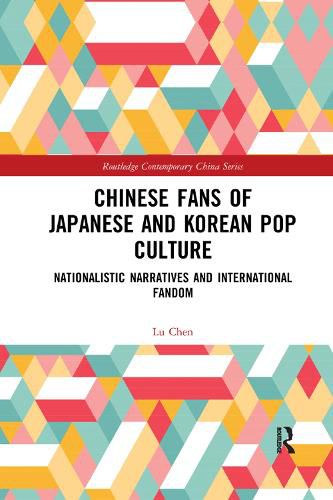Readings Newsletter
Become a Readings Member to make your shopping experience even easier.
Sign in or sign up for free!
You’re not far away from qualifying for FREE standard shipping within Australia
You’ve qualified for FREE standard shipping within Australia
The cart is loading…






How can Japanese popular culture gain numerous fans in China, despite pervasive anti-Japanese sentiment? How is it that there’s such a strong anti-Korean sentiment in Chinese online fan communities when the official Sino-Korean relationship is quite stable before 2016? Avid fans in China are raising hundreds of thousands of dollars in funding to make gifts to their idols in foreign countries. Tabloid reports on Japanese and Korean celebrities have been known to trigger nationalist protests in China. So, what is the relationship between Chinese fandom of Japanese and Korean popular culture and nationalist sentiment among Chinese youth?
Chen discusses how Chinese fans of Japanese and Korean popular culture have formed their own nationalistic discourse since the 1990s. She argues that, as nationalism is constructed from various entangled ideologies, narratives, myths and collective memories, popular culture simply becomes another resource for the construction of nationalism. Fans thus actively select, interpret and reproduce the content of cultural products to suit their own ends. Unlike existing works, which focus on the content of transnational cultural flows in East Asia, this book focuses on the reception and interpretation of the Chinese audience.
$9.00 standard shipping within Australia
FREE standard shipping within Australia for orders over $100.00
Express & International shipping calculated at checkout
How can Japanese popular culture gain numerous fans in China, despite pervasive anti-Japanese sentiment? How is it that there’s such a strong anti-Korean sentiment in Chinese online fan communities when the official Sino-Korean relationship is quite stable before 2016? Avid fans in China are raising hundreds of thousands of dollars in funding to make gifts to their idols in foreign countries. Tabloid reports on Japanese and Korean celebrities have been known to trigger nationalist protests in China. So, what is the relationship between Chinese fandom of Japanese and Korean popular culture and nationalist sentiment among Chinese youth?
Chen discusses how Chinese fans of Japanese and Korean popular culture have formed their own nationalistic discourse since the 1990s. She argues that, as nationalism is constructed from various entangled ideologies, narratives, myths and collective memories, popular culture simply becomes another resource for the construction of nationalism. Fans thus actively select, interpret and reproduce the content of cultural products to suit their own ends. Unlike existing works, which focus on the content of transnational cultural flows in East Asia, this book focuses on the reception and interpretation of the Chinese audience.